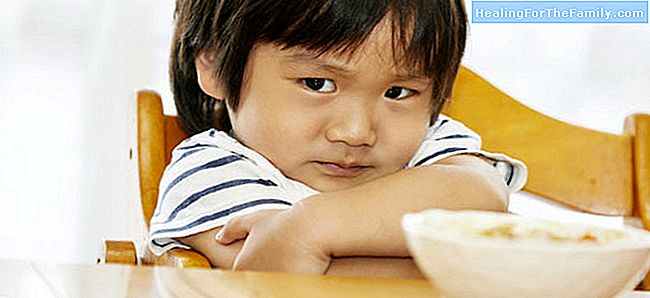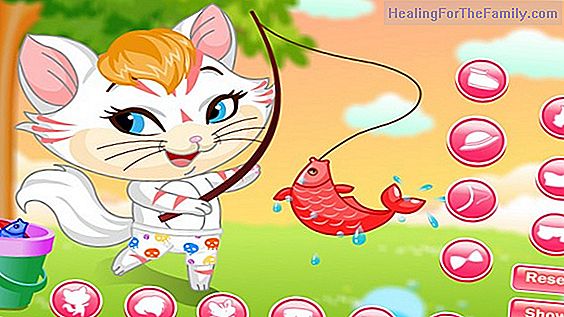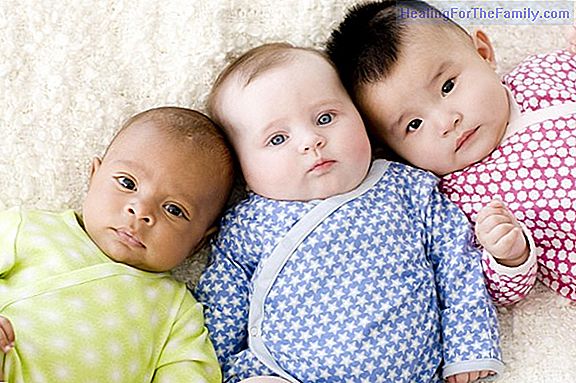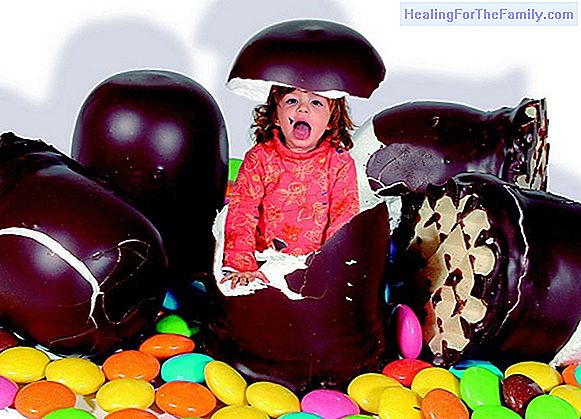Children with fear of swallowing
If we talk about infant feeding we can see that there are children who can suffer different phobias in different degrees. Some of these food phobias are very common in a certain period of age, and most will remit if some guidelines are followed. Within all the food phobias that exist, we are going t
If we talk about infant feeding we can see that there are children who can suffer different phobias in different degrees. Some of these food phobias are very common in a certain period of age, and most will remit if some guidelines are followed.
Within all the food phobias that exist, we are going to focus on phagophobia, they are children with fear of swallowing and it is due to the fear of drowning when they swallow food, both liquid and solid. In some isolated cases it also occurs in adults.
Children with fear of swallowing: Causes

Phagophobia is, as we know, a psychological problem suffered by those who have experienced a traumatic event related to the act of swallowing. Traumatic experiences are the roots of this disease. They can be lived:
- In the first person. To live the experience in the choking with some food in first person, generally in the childhood impresses to him of such way that it begins to fear the swallowing act.
- From the viewer. Others experience the choking experience but have witnessed this event. This scene is in the mind of the individual and begins to fear the act of swallowing.
Other causes that can cause it are:
- Having suffered painful pharyngitis that has prevented him from swallowing painlessly.
- Stop eating due to fear of vomiting and pain.
- A gastroenteritis or an empacho associated with certain foods may be enough to generate the fear of swallowing.
- The violent attitude of parents with their children.
Sexual abuse in childhood Other causes that have been determined are the intimidation that children may suffer at mealtime due to the violent attitude of their parents. Child sexual abuse can also be a cause of phagophobia.
Symptoms of the fear of swallowing in childhood
Phagophobia does not suffer with the same intensity. Some suffer from tachycardia, sweating, nausea, dry mouth, and even difficulty breathing. In more extreme cases, vomiting can occur, feeding back the fear of swallowing.
All this mechanism begins before sitting at the table. The person or child who suffers from phagophobia begins to notice the symptoms as the meal time approaches and begins to think about it, recreates what is going to happen. Anticipate the problem and create a sense of anguish. The anxiety produced by this anguish gives way to the aforementioned symptoms. This produces stress, which causes arches and a feeling of suffocation, creating the impression that the muscles of the pharynx are closed, that together with the short breath confirms the idea of the impossibility of swallowing. It is a vicious circle that feeds the phobia. Consequences of the fear of swallowing in childhood
The permanent fear of choking provokes at times a fear such that the child can stop feeding by appearing medical complications related to vitamins or minerals. The child suffers malnutrition, sometimes confused with anorexia nervosa. In addition, the child experiences psychological discomfort since there are many social situations that he can not share with others because he feels a lack of control. What parents of children with fear of swallowing can do
- Patience.
Getting angry or forced will not help. The important thing is that the child recovers the habit of eating and for this you need patience. Adults must help with their attitude and not make the situation worse by raising stress and anguish.
- Understanding.
It is difficult to keep calm every day but it is important that the child feels understood since it is a situation that also affects him. Being understanding will be an attitude that helps a lot to overcome the fear of eating.
- The food in its time. It is important that the time of the meal does not lengthen. It is preferable that the portions are small to be more than 1 hour eating. If the child feels overwhelmed it is better to remove the plate and eat it later (at dinner for example). It is important to do it without scolding or getting angry, just ask if you want more. If he says no, withdraw it.
- Do not talk about the problem with other people in front of the little one . Children know when they are talked about. The child will worry twice when they hear the adults' concern when they talk about it among themselves. In general, it is good to try not to give it too much importance in an obvious way, because that stresses the child more.
It will also be important that: -
The whole family eat together at the table.
- Let everyone eat the same menu.
- Food is healthy and varied












